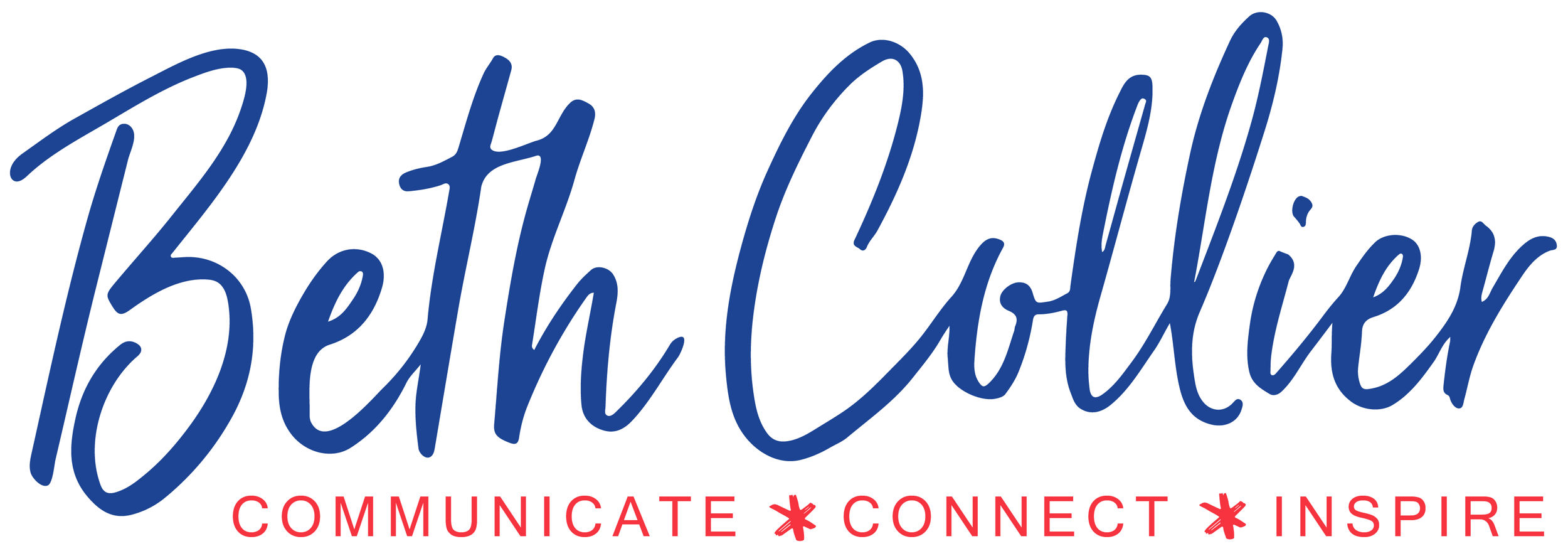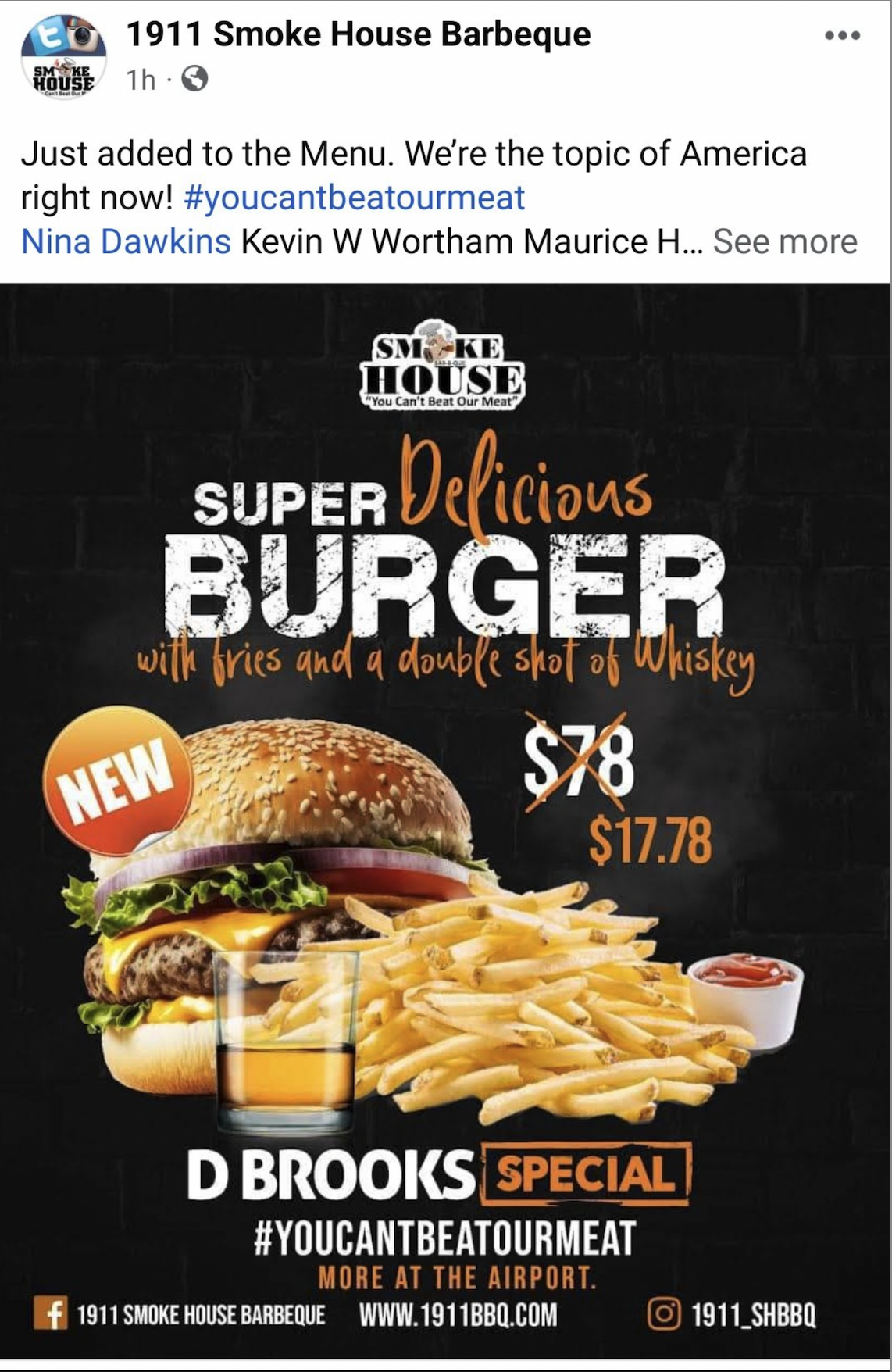Is this apology worth $78?
Another week, another lousy “apology”
When I was 9 years old, my dad took a trip from our small town in Indiana to New York City.
That’s right, The Big Apple!
I remember the excitement of receiving a postcard from Dad with a picture of the EMPIRE STATE BUILDING on the front.
Not the actual postcard Dad sent me, but same building
Among the few words Dad chose to share about his trip were details of a meal he had eaten at a real NYC deli – and the cost of it.
I can’t remember how much a pastrami sandwich, Coke, and piece of cheesecake cost Dad back then – but I remember thinking I would have to do A LOT of extra chores to afford to eat in Manhattan.
So I had to chuckle a bit when I saw a tweet from New York Times columnist David Brooks, lamenting the price of an airport meal in Newark, New Jersey.
“This meal just cost me $78 at Newark Airport.
“This is why Americans think the economy is terrible,” he wrote.
A burger and fries cost $78?
Well, it is New York (adjacent), and it is an airport.
I live in London, home of a restaurant selling an $850 steak. High-priced meals do not surprise me.
But of course, I was curious…
There must be more to this story.
But Brooks didn’t share his receipt.
He just shared an image and a line designed to shock – or stir people up.
And it did.
The tweet instantly raked in millions of views.
But when I looked closer at the image Brooks shared, I noticed the glass.
It was way too small to be holding a Coke from an American restaurant.
After internet sleuths identified the name of the airport restaurant, and shared its menu, a new story emerged…
And a lot of funny tweets.
Shout out to this callback to the disaster Fyre Festival!
Even the airport restaurant in question called Brooks out, noting the burger and fries cost a not-so-shocking $17 — and that most of Brooks’ tab was alcohol.
Then they announced the “D Brooks Special” — for a bargain price of $17.78!
So I knew what would happen next … an apology.
Or sort of an apology.
After a conversation on PBS about the week in politics, William Brangham asked Brooks about the tweet.
#sorrynotsorry David Brooks on PBS
Here is what Brooks said:
“First it started out hatched in my mind as a joke, 'cause if you looked at what I was eating, it was bourbon with a very fattening hamburger and fries. I can't afford to make bad lifestyle choices.
“The problem with the tweet, which I wrote so stupidly, was that it made it seem like I was oblivious to something that was blindingly obvious.
“An upper middle class journalist having a bourbon at an airport is a lot different than a family living paycheck to paycheck. And when I’m getting sticker shock, it’s like an inconvenience. When they’re getting sticker shock, it’s a disaster.
“I was insensitive. I screwed up. I should not have written that tweet. I probably should not write any tweets.”
“But I made a mistake, and it was stupid.”
Then he went to talk about inflation and sticker shock and “people less fortunate than I am.”
It’s not really an apology, but it is an admission of a mistake.
But it left me more irritated than the initial tweet, because Brooks is missing the point.
The biggest issue with his tweet isn’t that it was “insensitive.”
It’s that it was misleading.
In fact, it’s misleading at best – and deceptive at worst.
He could have tweeted, “Wow, it sure is expensive to get drunk in Newark Airport!”
But that wouldn’t have gotten much engagement, because you don’t go to an airport bar to get drunk on a budget.
And the line he uttered that really made my eyes widen was when he identified himself as an “upper middle class journalist.”
Surrounded by the wealth of New York City, Brooks may not feel like upper class, but his net worth disqualifies him from any part of America’s middle class.
But why does it matter?
In terms of the world’s problems, it’s not the biggest – and I won’t be losing sleep over it.
But here’s why it matters to me —
Brooks is a writer for a serious newspaper, and as a journalist, he has an ethical obligation to report the truth.
His tweets may not be commissioned by the paper, but they still affect his reputation – and by extension, the New York Times’ reputation.
Maybe he was trying to make a joke, but the result is that he misled people.
And if he regrets that, he should apologize for that.
“I recognize that my tweet was misleading, and I apologize for that. Journalists have an obligation to report the truth – and I should have done better. I will in the future.”
How hard was that?
And let this be a reminder to all of us:
A good apology puts out the fire.
A bad one fuels it.
And if you want to get boozed in a New York City airport, you’d better do some extra chores now so you’ll be able to afford it.
__________________________________________
Beth Collier loves writing, pop culture, and cramming in as many Broadway shows as possible when she visits New York City.
She also loves helping companies, leaders, and teams improve their communication (and creativity and leadership) through consulting, coaching, and workshops.
Her clients benefit from Beth’s global corporate experience, Midwestern practicality and enthusiasm, and an endless supply of pop culture references.
To find out how Beth can help you become a more confident, creative, and compelling leader – or improve communication in your company – visit www.beth-collier.com or drop her a line at beth@beth-collier.com
__________________________________________








